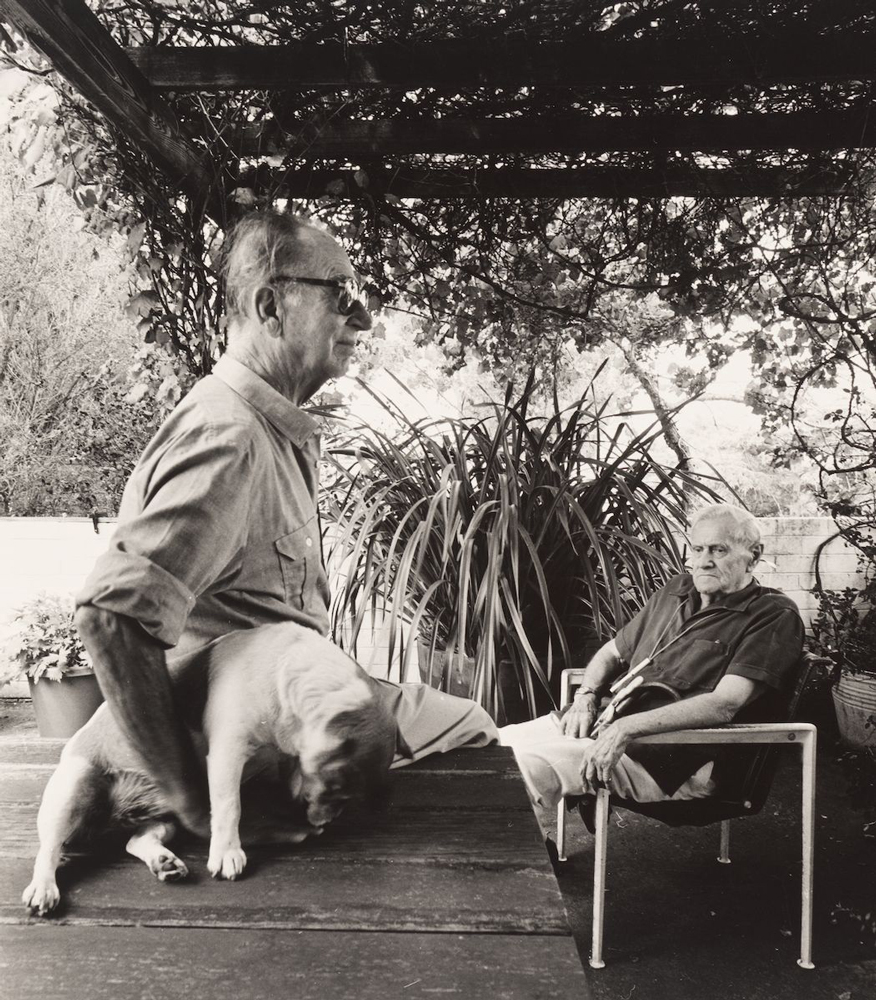About Patrick White
Novelist, playwright, poet, and political activist, Patrick White won the Nobel Prize for Literature in 1973, ‘for an epic and psychological narrative art which has introduced a new continent into literature'.
He wrote some of his most acclaimed works while living with his life partner, Manoly Lascaris at Dogwoods in Castle Hill, including Voss and Riders in the Chariot which each won the Miles Franklin Literary Award.
Location
Category
Share and save

Formative years
Patrick Victor Martindale White was born to wealthy Australian parents in London in 1912. After returning to Australia, the family lived in the Sydney suburb of Elizabeth Bay. Paddy, as he was known during childhood, had a difficult relationship with his mother and was closer to his nurse, Lizzie Clarke.
From his early years Patrick struggled as an ‘outsider’, initially identifying more as an Englishman than an Australian and aware of his homosexuality at an early age. Writing was always at the core of his being, and he stressed that his work was an unavoidable ‘affliction’. His severe asthma troubled him his entire life and meant he spent much time on his own.
On leaving school he worked as jackaroo, an experience that informed his first novel, Happy Valley, which was published in 1939. After studying modern languages at Cambridge, he moved to London to write and moved in artistic circles.
Pivotal relationships
Patrick spent time in New York where his work gained more success and he met his publisher, Ben Huebsch who recognised his talent and played a vital role in the acceptance of his work.
Patrick served as a Royal Air Force operational intelligence officer during the Second World War. This profoundly changed his outlook and saw him yearning to return to Australia. During his service he met Manoly Lascaris, a Greek army officer, who became his life partner. They decided to make their life together in Australia.
In 1948, Patrick bought a small farm in Castle Hill where he and Manoly planted four dogwood trees, giving the property its name. They laboured planting crops and fruit trees and bred champion Schnauzers. The farm was not a commercial success, but the experience provided Patrick with rich source material which he drew on in his 1955 novel The Tree of Man.
Recognition
Patrick’s novel Voss became the inaugural winner of the Miles Franklin literary award in 1957 and gave him the means to travel abroad. He reconciled with his mother, who had always promoted his work.
Returning to Castle Hill he wrote his second Miles Franklin winner Riders in the Chariot (1961) which addressed issues of alienation and difference. When his mother died in 1963, Patrick received a substantial legacy which enabled him to move to Martin Road, Centennial Park.
In 1973, Patrick became the first – and is still the only – Australian to be awarded the Nobel Prize for Literature. The citation applauded his ‘epic and psychological narrative art which has introduced a new continent into literature’. The same year he was named Australian of the Year.
Activism and philanthropy
Patrick protested the Vietnam War, literary censorship and nuclear arms. He advocated for Aboriginal rights and gave to numerous charities. He was opposed to the British honours system, declining a knighthood in 1970, and also to the celebration of the bicentenary of British settlement in Australia. In 1975, he resigned his Order of Australia to protest the dismissal of the Whitlam government.
Patrick died at home in Centennial Park in 1990. He had written 12 novels, 3 short story collections, 8 plays and numerous poems.
Patrick’s legacy as one of Australia’s great writers lives on in the Patrick White Award which he established with the money from his Nobel Prize. The Award is given to authors who have made a significant but inadequately recognised contribution to Australian literature.
References and further reading
Australian Dictionary of Biography, Biography - Patrick Victor (Paddy) White
David Marr, Patrick White: a life, 1992)
National Library of Australia, Papers of Patrick White
National Museum of Australia, Patrick White wins Nobel Prize
Nobel Prize in Literature 1973
Patrick White, Flaws in the glass: a self-portrait, 1981.
